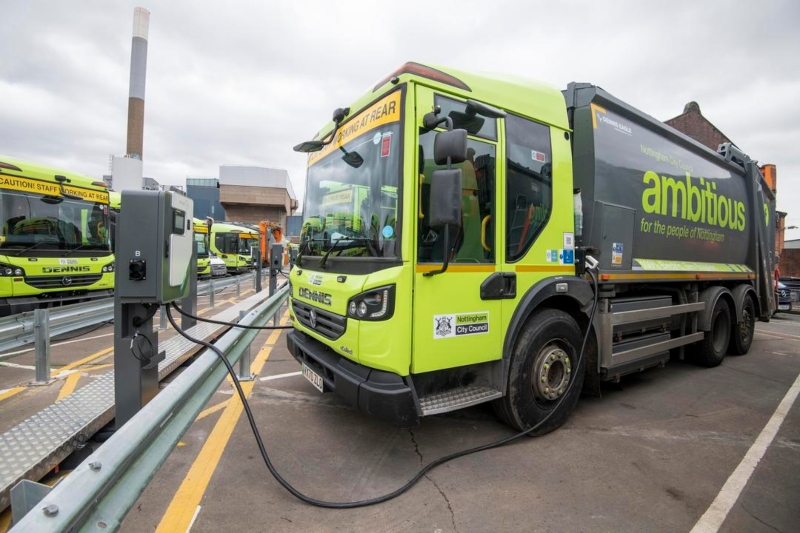

Funded by Interreg North-West Europe, with a contribution from Innovate UK, the CleanMobilEnergy pilot aims to maximise the use of energy by using battery storage and 40 V2G vehicles for short-term storage of electricity that has been generated by solar panels on the roof of the council’s depot.
Monitored by a purpose-built Energy Management System, the bi-directional charging units can send power back to the buildings on the site of the depot or to the grid during peak times, balancing the demand of electricity and reducing energy costs.
Cllr Sally Longford, portfolio holder for Energy, Environment and Waste Services, said: ‘We are racing towards becoming the first carbon neutral city in the UK by 2028. Switching our fleet to electric vehicles allows us to reduce our carbon emissions, but it brings challenges around our energy supply to charge these vehicles.
‘The vehicle-to-grid pilot is allowing us to explore innovative ways to bring renewable technologies, energy storage and intelligent management systems together to test solutions which could be rolled out in other areas of the country.’
Across the depot, solar arrays with a combined generation of 176kWp will allow Nottingham City Council to use clean energy to charge the growing electric vehicle fleet. Over half (51%) of the council’s vehicles are powered by electricity, including six bin lorries, road sweepers and vans.
Each of the giant batteries that have been installed for the project is made from 24 used EV batteries. These have a combined storage of 600kWh, which is enough to power the average UK household for two months.
Wayne Bexton, director of Environment and Sustainability, said: ‘The installation of the batteries concludes the infrastructure side of a remarkable project that enables energy from solar panels to be stored and sold back into the grid at the most lucrative times of day.
‘As a demonstrator microgrid, it means we are less reliant on energy from the national grid to power our electric vehicles, helping us save money, save carbon and work towards carbon neutrality. I am extremely proud of the team working on this and thankful to our funders Interreg NW Europe and Innovate UK.’